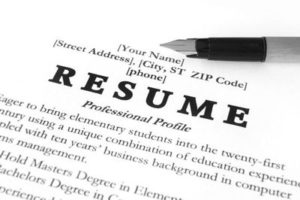After all, it’s an uber-competitive job market, as every Sacramento IT consultant knows. Here are the stats:
- The average job opening attracts 250 résumés. (Glassdoor)
- Only 2% of applicants will be called for an interview for the average job opening. (Glassdoor)
It’s so tempting to pad your résumé. You could probably fake your way through an interview, you probably won’t be found out, you won’t go to jail, so why not? After all, everybody does it at one time or another. (Or do they? Actually, most people are actually honest on their résumés, according to Michael Klazema at Brazen Careerist.)

First, let’s define our terms. What do we mean by “padding”?
- Creative title inflation (you call yourself a senior programmer, but you have only 5 years’ experience)
- Exaggerating responsibilities (you present yourself as a “lead,” but you were only a team member)
- Inventing academic degrees (this one IS actually illegal)
- Lying by omission (you just leave out those short-term jobs that didn’t work out, and misstate other job start/finish dates to cover your tracks)
- Enhancing competencies (you present yourself as an advanced Visio user although you’ve only had a couple of jobs where you used it)
- Augmenting accomplishments (you list courses you’ve never taken, or you say that an elementary course was an advanced course)
By now it should be clear that by “padding” we actually mean “lying.” But if you still think lying on your résumé is really no big deal, consider these caveats:
- Don’t compromise your employer’s trust. Your good character is the key to that trust. Even if sneak past the interview, you don’t want to be looking over your shoulder, wondering if someday you will be found out.
- Don’t compromise your reputation. You may make it through your interview (unless they ask you to take a skills test on the spot), but inevitably it will be clear that your skills and experience don’t meet expectations. Your performance will not measure up, leading to your embarrassment at least and possible firing at most. Your reputation will eventually be damaged, your career stymied. In the Sacramento IT consultant world, for instance, “everybody knows everybody.” That’s true for the LinkedIn world as well.
- Don’t assume they won’t check. Contrary to popular belief, employers WILL check your job history, academic degrees and professional references, sometimes even after you’ve been hired. Job history and reference falsification won’t be tolerated by most employers; you’ll be out the door. But if you lie about academic degrees, you may face criminal charges. Doesn’t happen frequently but who wants to test it? (Google Vahid Manian, former Broadband senior vice president, or Microsemi CEO James Peterson.)
The take-away: You are good enough to get hired without lying. Compare your skills and experience with the job description. Make your résumé a positive, confident expression of the ways you mesh with the job requirements. If certain skills or a lack of education are standing in your way on a consistent basis, take the courses you need to fill the gap.
Honesty really is the best policy. Besides, as Mark twain said, “If you tell the truth, you don’t have to remember anything.”
Next month: How to (Honestly) Tailor Your Résumé to Match the Job Description
